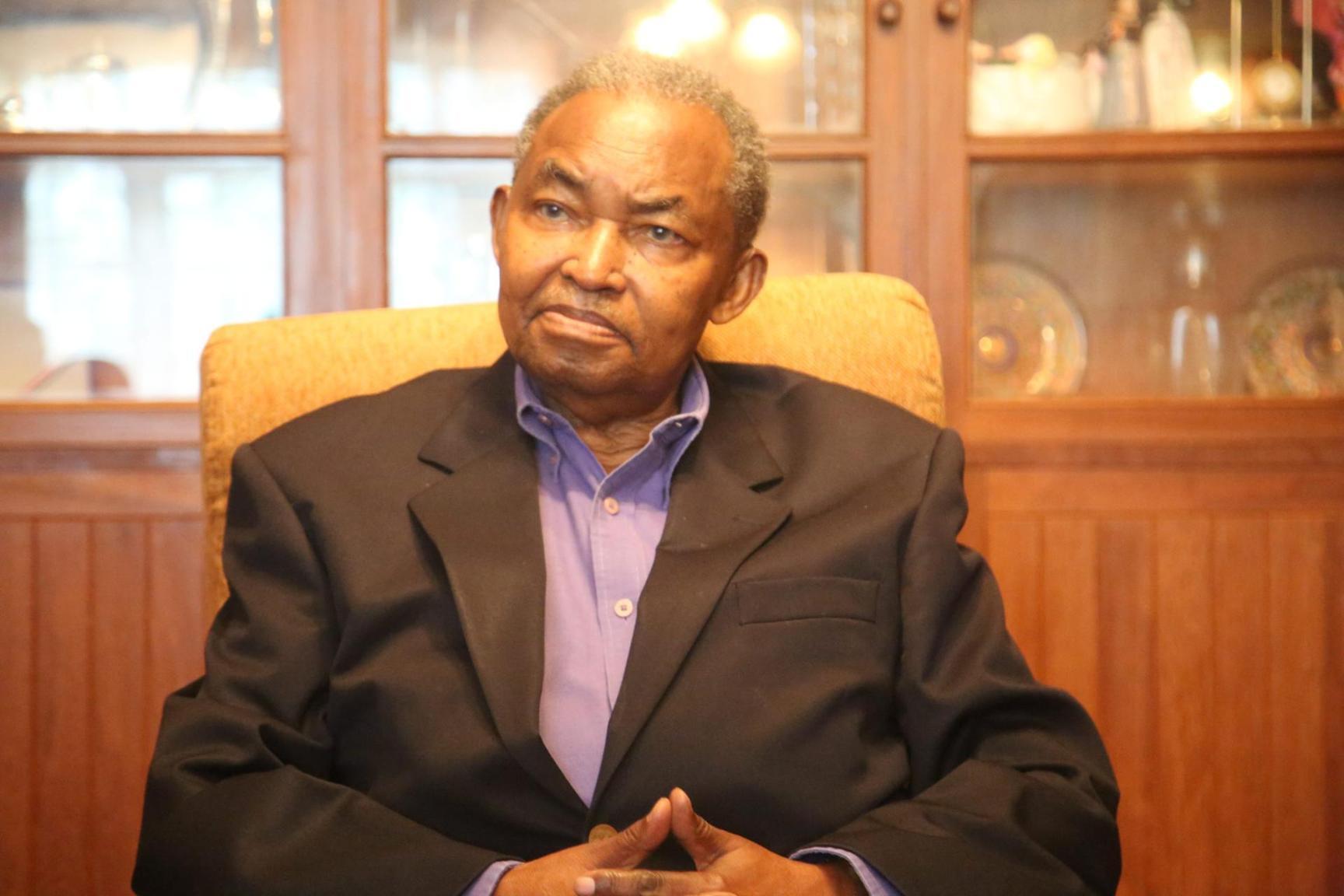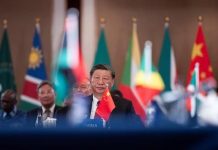Africa-Press – Tanzania. … A field officer who rose to become PM, Vice-President
… Nyerere entrusted him with marshalling economic recovery
From EDWARD QORRO in Mwanga
As he emerges from the dining table, Cleopa David Msuya still looks fit as a fiddle.
Do not be deceived by the walking aid he’s been using for some time now, after suffering a broken femur, a while ago.
“I had broken my thighbone and every now and then go for some checkups,” opens up the former Prime Minister and First Vice-President, during a recent interview he granted a team of writers from Tanzania Standard Newspapers (TSN) Limited who visited his rural palatial home nestled on Pare Mountains, in Chomvu area, Usangi division, Mwanga District.
The former longest-serving Finance Minister still has a sharp memory, a reality confided to us by Dr John Msuya, one of his children.
Mzee Msuya attests this by recalling his modest upbringing in the quiet village of Chomvu.
“Our parents used to assign us daily chores the night before and we would ably attend to, lest we get canned the African way,” he says.
Msuya, Baba wa Mwanga, as he is fondly referred to by his fellow residents, attended the Lutheran Primary School, then the Old Moshi Secondary School and Tabora Secondary School’s top two classes, which enrolled the brightest students from all across the nation, as a Christian in a largely Muslim district.
The nonagenarian had the privilege and was in fact among few Tanzanians who made it to the Makerere University in 1952, where he studied Geography, Political Science and History and graduated with a Bachelor of Arts degree, three years later.
Upon his return to the country in 1956, Msuya joined the government’s Community Development Department, acting as a field officer until 1960 when he was transferred to Dar es Salaam and promoted to the position of Community Development Commissioner in 1962.
At one point in life, Msuya got posted in Same District as a community development officer, a move that the area District Commissioner by then, John Chant was not happy about.
“He was a white DC and he probably thought that my presence there would rattle his feathers being a local,” chuckles the former Prime Minister. He says the DC was worried since the District Commanding Officer (OCD) Elangwa Shaidi and an Administrative Officer were also Pare, they could conspire against the colonial rulers.
It is for this reason he thought it wise to seek refuge at the then Community Development Training Institute; CDTI-Tengeru, before being relocated back to Same District.
As was the case back then, Msuya was unable to join TANU as a civil servant but did so as soon as the rule was removed in 1964.
VIDEO: Exclusive interview (in Kiswahili language) with veteran politician Cleopa Msuya
He did so, despite having to devote the majority of his time to his job as the Ministry of Community Development’s Permanent Secretary (1964- 1965), the Principal Secretary for Water Development and Lands Settlement (1965–1967), and in Development and Economic Planning (1967–1970).
In 1970, Cleopa Msuya became part of the Treasury under Amir Jamil, an impeccable Asian Minister, where he was exposed to the challenges of managing Tanzania’s limited financial resources and maintaining the country’s strong financial position during a period when the rampant investment was putting the country’s reserves under strain.
When he was appointed Finance Minister, he believed he had achieved the pinnacle of his civil service career.
He was appointed by President Nyerere to be among the ten nominated members authorised by the constitution.
“One morning, I got alerted that Mwalimu wanted to see me…he informed me of changes he wanted to make,” he recalls.
According to Msuya, Mwalimu Nyerere wanted to make him both, an MP and Finance Minister and he out rightly refused.
“I told him that I wasn’t ready for such a mess, but he reassured me all will be well.”
The country was in a bad shape back then, but it would slowly but surely get back to its feet when he took the reins.
As that wasn’t enough, in 1975, Msuya became a nominated MP, having earlier relinquished the title to one, Mgonja, under Mwalimu’s advice.
“We had come up with an industrial policy which insisted on processing everything inside the country…ideally this meant to capacitate our industries after the economic comatose.”
In 1980, he vied for and won the Mwanga constituency and Mwalimu made him the Prime Minister for the first time.
Serving as the country’s third in command, his main role was to liaise with regional commissioners in speeding up production.
As he puts it, a lot of effort was exerted on Agriculture.
“That’s how we ended up getting the ‘big four’ region, namely Iringa, Rukwa, Mbeya and Ruvuma,” he reveals.
Such a drive saw the government pour in a lot of resources, including enough fertiliser and other related agricultural machinery with a view of managing the market system.
“We poured in a lot of money for Kigoma, but it didn’t pay off due to the failure of their local leaders.”
Expediting liberation struggle
His other role as Prime Minister back then was expediting the liberation struggle agenda among Frontline States (FLS).
This was a loose coalition of African countries from the 1960s to the early 1990s committed to ending apartheid and white minority rule in South Africa and Rhodesia. The FLS included Angola, Botswana, Lesotho, Mozambique, Tanzania, Zambia and Zimbabwe.
In April 1975, the Frontline States – then consisting of Botswana, Lesotho, Tanzania and Zambia – were formally recognised as an entity as a committee of the Assembly of the Heads of State of the Organisation of African Unity.
They were joined by Angola (1975), Mozambique (1975) and Zimbabwe (1980) when those countries gained their independence.
Tanzanian President Julius Nyerere was the chairman until he retired in 1985.
His successor was Zambian President Kenneth Kaunda.
The countries met regularly to coordinate their policies.
Being a PM, Msuya would shuttle between the FLS in realisation of the liberation struggle.
‘Bear your own burden’
While serving as Finance Minister in the second phase, Msuya uttered an infamous comment that rubbed Members of the Parliament the wrong way.
He’s reported to have told the MPs that everyone ought to bear their own burdens.
This happened after the MPs complained of economic hardships back then and that they had many mouths to feed.
He would then approach the then President, Ali Hassan Mwinyi to apologise for such remarks, but as a surprise, he had the full backing of the President.
To-date, Msuya has no regrets for such an utterance, saying such words have vindicated themselves.
He retired from active politics in 2000.
He has also once served as the Tanzania Breweries Limited (TBL) Board Chairperson and also appointed as the Ardhi University Chancellor for two decades until 2021.
The former Vice President spends most of his time at his Dar es Salaam residence but more often than not retires to his birthplace in Mwanga Dstrict.
For More News And Analysis About Tanzania Follow Africa-Press







